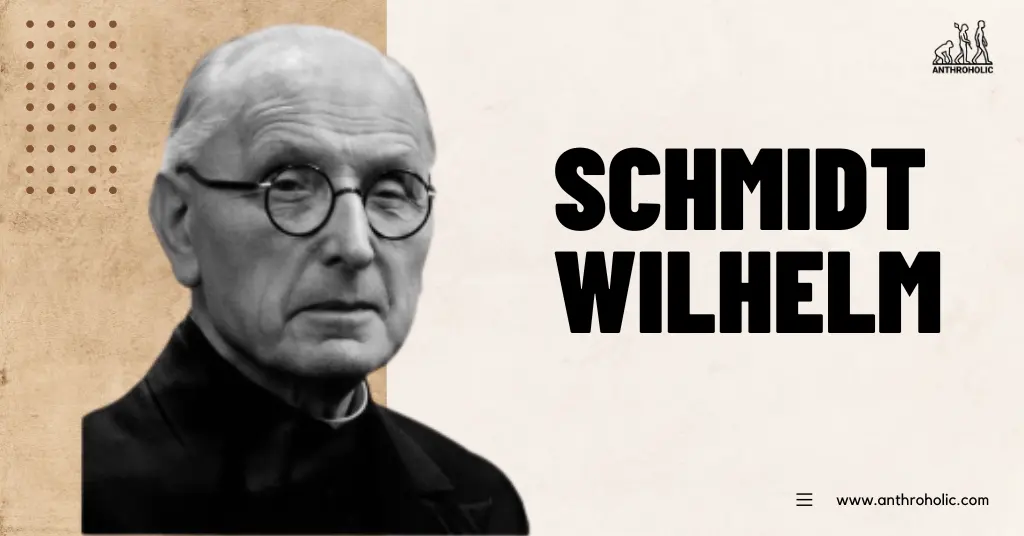AI Answer Evaluation Platform Live Now. Try Free Answer Evaluation Now
Wilhelm Schmidt
Wilhelm Schmidt was not just a Catholic priest-he was a pioneering ethnologist, linguist, and cultural theorist who left a lasting imprint on 20th-century anthropology. Best known for founding the influential Anthropos journal and proposing the controversial theory of “primitive monotheism,” Schmidt blended rigorous scholarship with deep religious conviction. His work spanned continents and disciplines, as he sought to understand the origins of language, religion, and human culture through both scientific inquiry and theological reflection.

At a time when anthropology was taking shape as a modern discipline, Schmidt offered a distinctive vision rooted in diffusionism, linguistic evidence, and the belief that spirituality was a foundational element of early human societies.
Early Life and Education
Wilhelm Schmidt was born on August 14, 1868, in Hörde, Prussia (now part of Dortmund, Germany), into a devout working-class family. His early years were shaped by strong Catholic faith and a disciplined upbringing. Showing intellectual promise, he chose to pursue religious life and entered the Society of the Divine Word (SVD), a missionary order devoted to linguistic and cultural work.
Schmidt’s theological training took place at the SVD’s seminary in Steyl (the Netherlands), where he was ordained a priest in 1892. His scientific curiosity led him to study linguistics and ethnology at notable universities in Berlin and Vienna. There, he immersed himself in historical-comparative linguistics and ethnographic methods-skills that would deeply influence his later research.
Academic Career and Field Activity
Shortly after ordination, Schmidt was appointed professor at the St. Gabriel mission seminary in Mödling, near Vienna. During this time, he began traveling to mission territories-particularly in Oceania and Asia-to collect linguistic and ethnographic materials, laying the groundwork for his later diffusionist theories.
In 1931, he founded the journal Anthropos and the accompanying Anthropos Institute. These institutions became hubs for scholars worldwide, promoting comparative studies of religion, language, and culture under Schmidt’s editorship. The institute in Vienna also housed his growing archive of linguistic data, early religious myths, and ethnographic observations.
His growing scholarly reputation led to a full professorship in ethnology at the University of Vienna, where he taught until the 1938 Anschluss. In addition to his university duties, Schmidt was actively involved in the Vatican’s anthropological commissions and served as a key consultant on religious ethnology, reinforcing his standing in both academic and ecclesiastical circles.
Theoretical Contributions
Wilhelm Schmidt is best remembered for several bold and often controversial theoretical positions. At the heart of his intellectual legacy is the theory of primitive monotheism-what he called Urmonotheismus. According to Schmidt, the earliest human societies believed in a single, high god-a benevolent creator and moral authority. This directly challenged the dominant view of the time, which assumed early religions were animistic or polytheistic. Schmidt’s theory sparked wide debate, particularly among secular anthropologists, but gained traction within Catholic scholarship.
He also championed the Kulturkreise or “culture circle” theory, a central concept in the cultural-historical school of ethnology. This framework, influenced by German diffusionism, proposed that cultural traits spread outward from certain origin centers in a circular pattern. Schmidt used this model to trace the diffusion of religious and linguistic features, often emphasizing the interconnectedness of tribal and ancient civilizations.
Another significant contribution came through his linguistic classifications. Schmidt was among the first to propose the existence of a wider Austric language family, connecting languages across Southeast Asia and Oceania. He also initiated the compilation of linguistic atlases and comparative grammars, integrating language studies with ethnographic and religious data.
Key Works and Publications
Schmidt was a prolific writer, producing over 100 books and hundreds of articles. His magnum opus is the 12-volume work Der Ursprung der Gottesidee (“The Origin of the Idea of God”), published between 1912 and 1955. This encyclopedic series aimed to document and interpret religious beliefs across tribal societies, supporting his argument for primitive monotheism.
Another key text, The Origin and Growth of Religion (1930), offered a concise and accessible summary of his religious theory and reached a broader international audience. He also wrote High Gods in North America, a comparative study of indigenous spiritual systems, and the Handbuch der Methode der kulturhistorischen Ethnologie, a methodological handbook used widely in his time.
Schmidt’s works were deeply interdisciplinary, combining theology, linguistics, anthropology, and history. Despite criticism for his diffusionist assumptions and theological bias, his texts were foundational for generations of scholars and missionaries working in the field.
Conclusion
Wilhelm Schmidt was a scholar whose intellectual ambitions reached across continents, cultures, and disciplines. From his theory of primitive monotheism to his contributions in linguistics and ethnology, Schmidt exemplified the early 20th-century effort to systematize human culture and belief through comparative methods. Though some of his theories-particularly those rooted in diffusionism-have since lost favor in mainstream anthropology, his legacy persists in the institutions he founded and the questions he raised.
Forced into exile after the Nazi annexation of Austria in 1938, Schmidt continued his work in Switzerland, where he held a professorship in Fribourg until his death in 1954. He remained intellectually active, publishing and mentoring students while quietly supporting resistance efforts during World War II.
Today, Schmidt is remembered not only for his academic output but also for his role in creating a platform for global anthropological dialogue through the Anthropos journal and institute. His vision of anthropology as a bridge between cultures-rooted in both scientific inquiry and spiritual respect-remains an important, if debated, chapter in the history of the field.
References
- Encyclopædia Britannica – Wilhelm Schmidt | Biography, Theory, Linguistics & Religion
https://www.britannica.com/biography/Wilhelm-Schmidt - Anthropos Institute – Heritage: Wilhelm Schmidt (1868–1954)
https://www.anthropos.eu/anthropos/heritage/schmidt.php - History of the University of Vienna – Wilhelm Schmidt, Prof. Dr.
https://geschichte.univie.ac.at/en/persons/wilhelm-schmidt - New World Encyclopedia – Wilhelm Schmidt
https://www.newworldencyclopedia.org/entry/Wilhelm_Schmidt - HistoryAnthro.org – “A Priest in the Resistance: Father Wilhelm Schmidt…”
https://histanthro.org/notes/a-priest-in-the-resistance/ - Trinities.org Podcast – Dr. Winfried Corduan on original monotheism (Wilhelm Schmidt)
https://trinities.org/blog/podcast-96-dr-winfried-corduan-on-the-case-for-original-monotheism/




